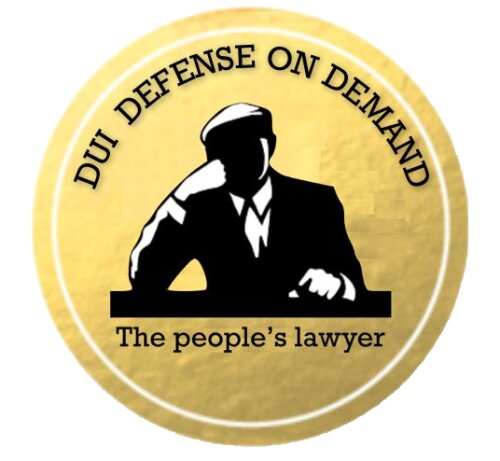Best Speeding & Traffic Ticket Lawyers in Illinois
Share your needs with us, get contacted by law firms.
Free. Takes 2 min.
Or refine your search by selecting a city:
List of the best lawyers in Illinois, United States
About Speeding & Traffic Ticket Law in Illinois, United States
Speeding and traffic ticket laws in Illinois are designed to maintain road safety and regulate driving behavior. When you operate a vehicle in Illinois, you are required to comply with posted speed limits, observe traffic control devices, and follow regulations governing everything from signal use to stopping at crosswalks. Violations can result in a ticket, fines, court appearances, points on your driving record, increased insurance rates, and potential license suspension. While many tickets are for minor infractions, some, such as aggravated speeding, are considered criminal offenses and can lead to more severe penalties.
Why You May Need a Lawyer
Many people assume that handling a speeding or traffic ticket is straightforward and simply pay the fine. However, there are circumstances where consulting a lawyer can be beneficial or even necessary. Common situations include:
- Receiving multiple tickets in a short period, which could threaten your driving privileges
- Being charged with aggravated speeding or other criminal traffic offenses
- Facing potential license suspension or revocation due to accumulated points
- Out-of-state drivers who are unfamiliar with Illinois processes and penalties
- Commercial drivers (CDL) who risk losing their livelihood
- Desiring to keep the violation off your record or avoid insurance increases
- Receiving a ticket in a construction or school zone, which carry enhanced penalties
An attorney can help assess your case, outline possible defenses, represent you in court, and potentially reduce or dismiss charges.
Local Laws Overview
Illinois traffic law is governed by the Illinois Vehicle Code (625 ILCS 5/). Some of the most relevant aspects for speeding and traffic tickets include:
- Speed Limits: The maximum speed limit on most Illinois highways is 70 mph, but this can be lower in urban areas, construction zones, and school zones.
- Aggravated Speeding: Driving 26 mph or more over the posted limit is a misdemeanor and can lead to jail time and a criminal record.
- Points System: Violations add points to your driving record. Accumulating a certain number of points in a specified period can lead to license suspension.
- Automated Enforcement: Red light and speed cameras enforce compliance in some municipalities. Tickets from these cameras are civil infractions, not moving violations.
- Failure to Appear or Pay: Ignoring a ticket can lead to a default judgment and license suspension.
- Mandatory Court Appearances: Certain offenses, like aggravated speeding or reckless driving, require you to appear before a judge.
Understanding these laws is essential to making informed decisions about contesting a ticket or seeking legal assistance.
Frequently Asked Questions
What happens if I ignore a speeding or traffic ticket in Illinois?
If you ignore a ticket, you may face additional fines, a suspended license, and even a warrant for your arrest in some cases. It is important to address every ticket promptly.
How many points can I have on my driving record before my license is suspended?
The Secretary of State may suspend your license if you accumulate three or more moving violations in a 12-month period. The length of suspension depends on the total points assigned to the violations.
Do I have to go to court for a speeding ticket?
Most speeding tickets are payable without a court appearance, but aggravated speeding and some other offenses require a mandatory court appearance.
Can hiring a lawyer help reduce or dismiss my ticket?
Yes. A lawyer may be able to negotiate with prosecutors, challenge evidence, or identify procedural errors that can result in reduced charges or even dismissal.
Will a speeding ticket affect my insurance rates?
Most likely. Insurers typically review driving records and may increase your premiums after a moving violation, especially if you accumulate several violations or a significant infraction.
What is the difference between a regular speeding ticket and aggravated speeding?
A regular speeding ticket is a petty offense, while aggravated speeding (driving 26 mph or more over the limit) is a misdemeanor criminal offense and carries more severe penalties, including the possibility of jail time.
What are the penalties for speeding in a construction or school zone?
Penalties are enhanced, including higher fines and potential license suspension. In school zones, exceeding the limit by any amount can result in a ticket, regardless of traffic conditions.
Can I contest a ticket issued by a red light or speed camera?
Yes, you can contest these tickets by requesting a hearing, but the procedures are typically administrative rather than through traffic court, and different standards apply.
How does a ticket affect commercial drivers (CDL holders)?
CDL holders face stricter scrutiny, and moving violations can affect their commercial driving privileges, potentially leading to suspension and impacting employment.
What should I do if I receive a ticket while driving out of state?
Illinois typically enters convictions for out-of-state violations on your Illinois driving record. It is important to address the ticket in the state where it was issued and seek legal advice if necessary.
Additional Resources
- Illinois Secretary of State - Driver Services Department: Provides detailed information about driving records, license suspensions, and reinstatement.
- Illinois Courts: Offers resources for finding court information and understanding court procedures regarding traffic matters.
- Illinois State Bar Association: Can help connect you with attorneys experienced in traffic law.
- Local Legal Aid Organizations: Many offer guidance or representation for low-income drivers facing severe consequences.
- Municipal or Circuit Clerk Offices: The specific county or municipal court clerk can offer information on how to pay or contest tickets.
Next Steps
If you have received a speeding or traffic ticket in Illinois, review the information on your citation to determine if a court appearance is required. Carefully consider the consequences before paying a ticket, as payment may count as a conviction on your record. If you wish to contest the ticket or are facing significant penalties, consult with a qualified Illinois traffic lawyer who can evaluate your case and recommend the best course of action. Gather all relevant documents, including the citation and any correspondence from the court, prior to your consultation. Acting promptly improves your options and helps protect your driving privileges.
Lawzana helps you find the best lawyers and law firms in Illinois through a curated and pre-screened list of qualified legal professionals. Our platform offers rankings and detailed profiles of attorneys and law firms, allowing you to compare based on practice areas, including Speeding & Traffic Ticket, experience, and client feedback.
Each profile includes a description of the firm's areas of practice, client reviews, team members and partners, year of establishment, spoken languages, office locations, contact information, social media presence, and any published articles or resources. Most firms on our platform speak English and are experienced in both local and international legal matters.
Get a quote from top-rated law firms in Illinois, United States — quickly, securely, and without unnecessary hassle.
Disclaimer:
The information provided on this page is for general informational purposes only and does not constitute legal advice. While we strive to ensure the accuracy and relevance of the content, legal information may change over time, and interpretations of the law can vary. You should always consult with a qualified legal professional for advice specific to your situation.
We disclaim all liability for actions taken or not taken based on the content of this page. If you believe any information is incorrect or outdated, please contact us, and we will review and update it where appropriate.
Browse speeding & traffic ticket law firms by city in Illinois
Refine your search by selecting a city.
















